
|
||
|
Portland art blog + news + exhibition reviews + galleries + contemporary northwest art
|
||
Marie Watt at PDX
Posted by Jessica Bromer on March 28, 2007 at 5:28 | Comments (11) Comments Along with Casey Watson at Motel, and Jason Fulford at Quality Pictiures this show has an amazingly good hang. A lot of PDX shows seem to become diffused by the space but Watt's show really makes use of it and anchors the viewer's experience. Ive alway liked what Watt did but this is the first show that was really convincing for me. She's stepped up a level. Those giant blanket towers she did in Washington DC a while back are still her ultimate pieces though . Posted by: Double J If I follow the logic of your last sentence, an exhibition of Elllen George would teach us about polymer clay? Bruce Conkle, a workshop on aluminum foil, and Sean Healy would cover resin and glass casting? Posted by: jerseyjoe That's probably too simple a read because each material brings its own baggage... it isn't just a craft seminar. That last sentence alludes to the previous ones where raw material's have a conceptual life of associations of their own. Raw doesnt mean "unloaded." It could easily mean just the opposite. Conkle and Healy are conceptualists who pragmatically switch mediums in accordance to the desired message. Watt has focused on blankets here and it is a study in what can be done with that iconography as it shifts between mediums. George is different, she is more about form and associations than material. Posted by: Double J Because I'm not reading between the lines, doesn't mean that the read is too simple. Her concluding sentence seemed like a cop-out, like everything she had said previously was blah blah blah and the thing that she really got from the work was a new appreciation of wood, cloth, and metal. Which is fine, but why bother with the rest? Posted by: jerseyjoe Or maybe you are cherrypicking for something that could possibly look like a cop out, especailly without context. The entire piece was about how Watt utilizes loaded materials yolked into a conceptual framework. Jessica simply used it as a way to say that these ever-more-complex materials are the ever more complicated message. of course it's your read... honestly, I'm glad it provoked you. (we will have a lot of reviews this week)
Posted by: Double J The logic used in my last sentence is actually meant to be combined with the logic used throughout the review. In fact, I generally use sentences in combinations specifically in order to form more complex statements. Blah blah blah being more than the sum of its parts..... To rephrase and expand on my closing thoughts: The work is loaded with interesting allusions both intended and unintended. Because Watt uses various materials that we interact with constantly, each viewer will bring his or her own diverse associations to the work. "Tread Lightly"'s impetus--the formal and conceptual issues brought up by the objects we call blankets--need not necessarily guide the viewer's exploration of the work. If the work has a strong enough physical presence, i.e. if wood, cloth and metal are used effectively, the viewer will be motivated to contemplate the work further. For example, the wooden sculptures hold interest for me, but that interest has everything to do with the abstract form of the wood-both natural and sculpted-and very little to do with blankets. I aimed to juxtapose a focus on Watt's effective or ineffective use of materials against a focus on the show's occasionally labored blanket theme. I wasn't juxtaposing the value of the raw materials against the value of the finished artwork. My appreciation for the finished artwork is expressed in the body of the review. As far as I can tell, I never stated that what I gleaned from this exhibition had anything to do with what might be taught in a craft-based workshop. I got what I generally get out of good art from this exhibition--a heightened awareness of the objects, images, etc. directly in front of me AND a slightly altered perspective on the world outside. My final paragraph refers to the latter while the body of the review mostly refers to the former. The final statement is neither intended to encapsulate nor stand apart from everything I stated previously. Posted by: Jessica Bromer This review basically hit the nail on the head for me. Catastrophe was far too forced, but all the other pieces were fantastic. Not one piece in very prominent in my memory, but when they are placed in the context of each other, the drab pieces of forgotten cloths become vibrant and alive. A surprisingly good show. Posted by: Calvin Ross Carl Catastrophe was my fav... but I wasn't so sure about the peek a boo aspect.... Still as a physcal object it made the rest of the room sing. I've always wanted a statement from Watt instead of preciousness. This was it... Posted by: Double J I totally agree Jeff. The piece at first was amazing. It is big and beautiful, and eerie with the feet protruding from the mound, but the whole "peek a boo" aspect is what killed it for me. It was most powerful for those few seconds when I was just curious about what was beneath the mound of cloth. Then another person in the gallery went and played peek a boo with it and ruined it for me. It felt like an issue that many Portland artists have... "well I have these sculptures, but maybe a sound element will make them stronger." No! It was just the one piece that lost focus for me. Still, amazing show and I was extremely happy to view it, so there is certainly something being done right. Posted by: Calvin Ross Carl has anyone here seen Jim Betsy's take on ..Marie Watt? posted on ..Seattle's Artdish forum pages .."Decor v Concept. 3 NW Post-Medium artists." ..? Posted by: Reiko Sundahl Well he has never asked, we are going through a redesign of the site and it will allow us to have more guest writers. Personally, I found that gallery hop to be a bit of glance... we do things a little more in depth here like my McCormick and Sorenson Reviews. Jessica's review here is more formal in tone too. Check out the reviews. I think its important that PORT's staff critics have their own voice and the chance to build up a body of work that adds weight to their critiques of individual shows. Posted by: Double J Post a comment Thanks for signing in, . Now you can comment. (sign out)
(If you haven't left a comment here before, you may need to be approved by
the site owner before your comment will appear. Until then, it won't appear
on the entry. Thanks for waiting.)
|
| s p o n s o r s |
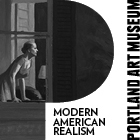 |
 |
 |
 |
 |
 |
 |
 |
 |
 |
 |
 |
 |
 |

|
Site Design: Jennifer Armbrust | • | Site Development: Philippe Blanc & Katherine Bovee | |


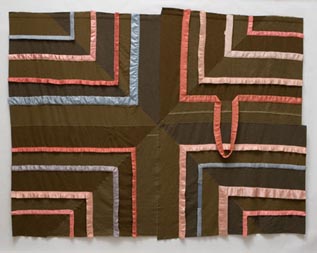
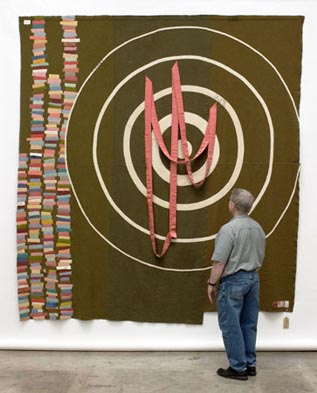
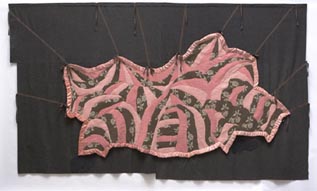
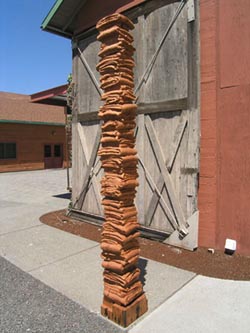
![[TypeKey Profile Page]](http://www.portlandart.net/nav-commenters.gif)